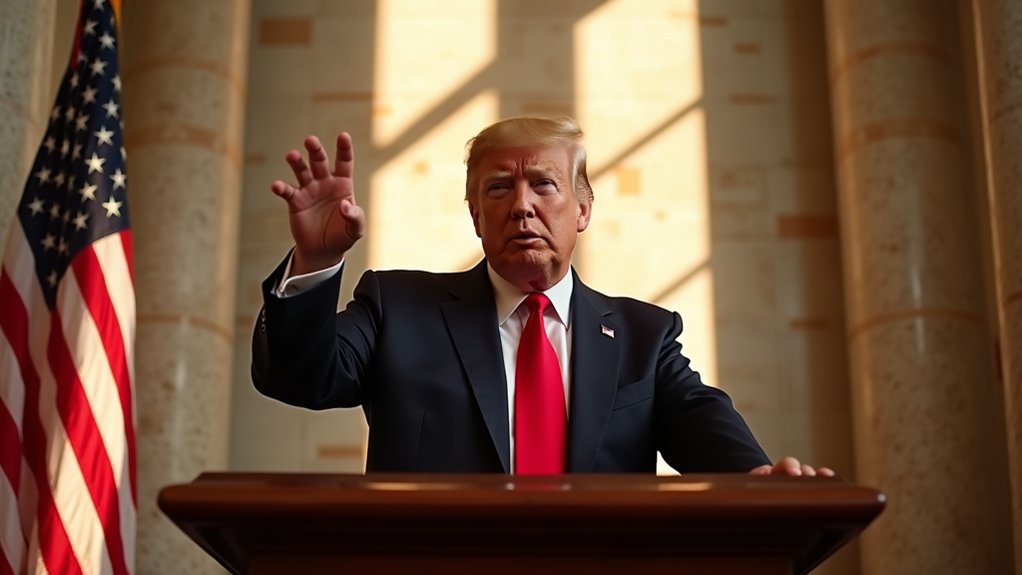Trump’s push to eliminate the debt ceiling has created strange bedfellows, aligning him with Elizabeth Warren and economic experts who view the mechanism as dangerous. While Republicans negotiate to raise the ceiling, Trump argues it’s too risky in politicians’ hands. His stance raises eyebrows, especially since his tax cuts added $1.9 trillion to the national debt. The real question isn’t about the ceiling—it’s about who’s truly playing political chess with America’s economy.

In a surprising turn that has left Republicans scratching their heads, former President Donald Trump is now calling for the complete elimination of the debt ceiling.
And get this – he’s actually agreeing with Elizabeth Warren. Yes, that Elizabeth Warren. The same senator he used to mock relentlessly is now his unlikely ally in this fiscal fight.
Trump took to Truth Social to make his case, arguing that the debt ceiling is simply too dangerous to be left in the hands of politicians.
The former president warns against political manipulation of the debt ceiling, calling it a dangerous economic weapon.
He’s not wrong about the risks. Economic experts have long warned that a U.S. default would send shockwaves through global markets and potentially trigger a financial catastrophe. It’s like playing chicken with the entire economy – and nobody wins that game.
The timing couldn’t be more awkward for Republicans, who are knee-deep in negotiations over a legislative package to raise (not eliminate) the debt ceiling. During his own presidency, Trump’s tax cuts led to a massive $1.9 trillion increase in the national debt.
Trump’s curve ball has thrown their strategy into disarray. Meanwhile, the Treasury Department is tapping its foot, warning of a possible August default if Congress doesn’t act soon.
The debt ceiling, a relic from 1917, doesn’t actually control spending – it just limits the government’s ability to pay bills Congress has already approved. The central bank policy plays a crucial role in managing these economic challenges through monetary tools.
Think of it as refusing to pay your credit card bill for purchases you’ve already made. Nonsensical? Many economists think so. Without action, experts warn that middle-class families could face a devastating 22% tax increase.
Trump’s argument is surprisingly straightforward: these recurring debt ceiling crises are self-inflicted wounds that distract from real legislative priorities.
He’s tired of watching politicians use it as leverage for their pet projects, and he wants it gone. Period.
Critics argue that eliminating the ceiling would remove an important check on government spending.
But supporters counter that the real debate should happen during the budget process, not through fiscal brinksmanship that threatens global economic stability.
The irony isn’t lost on anyone – Trump siding with progressive Democrats on a major fiscal issue.
But maybe, just maybe, when both Trump and Warren agree on something, it’s worth a serious look.





